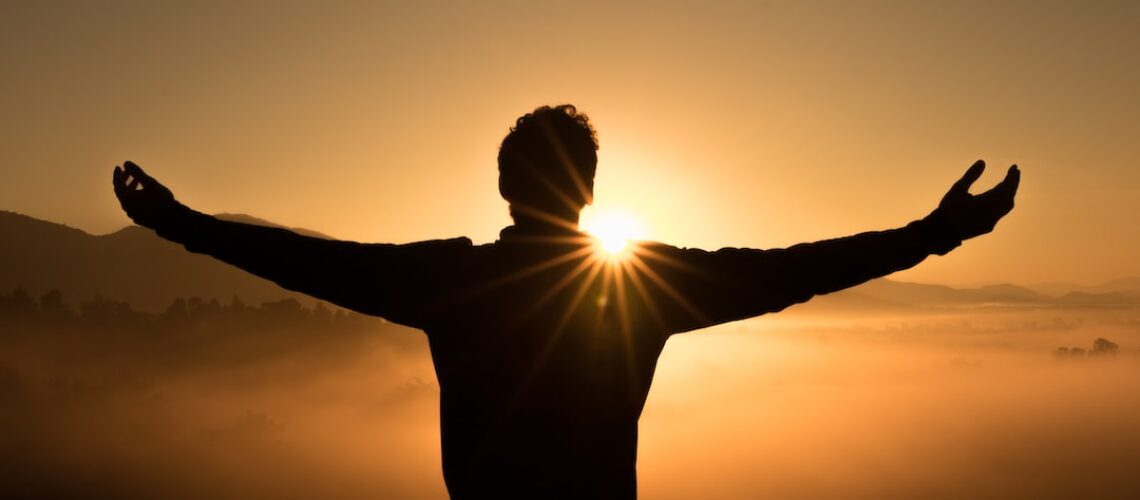Why thankfulness steadies the human journey
Desire drives us. We strive, we chase, we imagine new possibilities. Without desire, civilization would stall. But desire alone can also leave us restless, always chasing the next horizon, always frustrated with the gap between what we have and what we want.
That is where gratitude comes in. Not as a replacement for desire — but as its balance. Gratitude steadies us. It keeps us from mistaking every delay for despair. It reorients us toward the miracle that is already around us.
Without desire, life would stagnate. Without gratitude, life would sour. Together, they create a rhythm worth living.
Desire Without Gratitude
Picture someone who gets everything they want. The raise, the car, the vacation, the recognition. For a moment, satisfaction blooms. But then, almost immediately, the mind leaps to the next craving. What’s missing becomes louder than what’s present.
This is the trap of unchecked desire: the treadmill of always-more. We become blind to the treasures already here. The feast is set before us, but our eyes are fixed on the next course.
Gratitude as Counterweight
Gratitude interrupts the cycle. It says: Pause. Look at what is already good. Feel the luck of being alive at all.
This doesn’t kill ambition; it contextualizes it. Gratitude does not tell us to abandon striving, but it prevents striving from turning into bitterness. It lets us pursue without being consumed, achieve without forgetting to savor, dream without despising what we already hold.
Gratitude is not passivity. It is ballast.
A Paradigm Shift
Imagine a woman sitting at her kitchen table late at night. Bills are stacked in front of her. The house is small, the worries many. Her eyes sting with fatigue.
Then her child shuffles in, half-asleep, and mumbles, “I love you.” The words land like sunlight in the dark. The bills don’t vanish, the stress doesn’t evaporate — but something shifts. She feels the presence of the moment, and of a treasure no money could buy. Gratitude fills the cracks where anxiety threatened to take over.
She still desires change — more income, more ease. But now her striving is tempered by awareness of what already makes life worth living.
Mortality’s Perspective
Gratitude grows sharper when seen through mortality’s lens. One day, all our desires will end — either because we achieve them all (LOL), or because death stops us. Either way, the game of striving will close.
But the gratitude we cultivated along the way — the savoring of laughter, of sunsets, of small kindnesses — will have already paid its dividends. Even if life is shorter than we hoped, gratitude ensures that the time we had was lived as an act of grace.
Desire keeps us moving. Gratitude makes sure the movement is worth it.
Practices for Balance
- Start and end with thanks. Each morning, name one thing you’re grateful for. Each night, recall another. This bookends desire with appreciation.
- Interrupt frustration. When plans stall, pause and ask: What in my life is already good?
- Celebrate effort, not just results. Be grateful for the chance to try, not just the outcome. Even the attempt is part of the gift.
- Let gratitude fuel desire. Ask: Because I love this, what else can I create? Gratitude becomes a springboard rather than a stop sign.
Closing Thought
Gratitude doesn’t erase our longing. It redeems it. It makes room for joy even in the waiting, even in the incompleteness.
Desire gives us direction. Gratitude gives us perspective. Together, they keep us moving forward without losing the sweetness of where we stand.
Life is too short to be lived as a complaint. Desire will always whisper “more.” Gratitude answers, “yes, and thank you.”
Between them, we find balance — and in that balance, we find a life worth savoring.
For more like this, visit the broader project at life-savor.com, or explore the Life Savor book itself.
To learn more about Life Savor’s philosophy,
read Life Savor: Treasuring Our Gift of Life by Erik Victor Reed.








